
This is guaranteed to be weird coming from a lifelong atheist, but: what if gods were real? Not as supernatural beings whose existence defies explanation, but rather, as perfectly natural phenomena that just happen to be immensely complex and difficult to reason about, such that having a short label like “God” is useful?
For all we know, this could be what the people who invented gods actually meant. Take war: a simple concept in apparence, just two groups of people who enter conflict and fight each other. And yet war has strict rituals, and follows its own patterns; it always seems to come back after a period of peace, almost like a beast who is temporarily put at bay, but never vanquished. War can be easier to think about if you see it as a person — and thus are born the likes of Ares and Mars.

But the problem with using metaphors like Ares and Mars — but also the Abrahamic monotheistic God, the myriad Hindu deities, or the Sun-Disk of Atenism — is that inevitably, people will interpret them literally. Even if my speculation is correct, and the storytellers of time immemorial didn’t mean to say that there were actual invisible superhuman beings in the sky, soon enough people will assume that there are actual invisible superhuman beings in the sky. They’ll worship them, and thus is born a religion. And because this religion says things that are at odds with observed reality, there will be nonbelievers. Wait long enough, and you may even lose your metaphor altogether, once the god is defeated by some of those nonbelievers, whether they follow another religion or a secular worldview.
Nobody believes in Ares anymore. But from a certain point of view, Ares definitely does exist! He’s just exactly the same as war!
War is a good but simple example. The entities I’m interested in are typically more vast, and not easy to reduce to a single three-letter word — or if they are, that word is easy to misunderstand.
Take Darwinian evolution. It occurs over long timescales from years to billions of years. It spans all of the biosphere and all of human culture (and it surely exists on other worlds that have anything resembling life). It is based on a few rather simple, mechanistic ideas, the most prominent of which is natural selection. Even though natural selection is certainly not a conscious agent that makes choices, it is always tempting to see evolution as something that has agency. You see it in the way we talk: we’ll say that evolution “wants” humans to reproduce or “failed” to allow trilobites to survive extinction.
The “gods” I’m talking about are all like that. They exist beyond the usual plane of human existence. They are giant and long-lived and, crucially, emergent. They seem to make choices that their individual parts don’t.

But “god” isn’t the best label to refer to them, for the reasons explained above. Besides, it would feel bizarre to call evolution a “god” (though some have done that). So, what other words can we use?
“Meme” is now a widespread term (perhaps too widespread) to describe something similar. It was introduced by Richard Dawkins in the 1970s as the cultural analog to genes: a piece of cultural information that replicates, such as an idea, a behavior, a technology, or a musical pattern.
It’s not wrong to describe Ares or evolution as memes, but this word has a connotation of simplicity that doesn’t quite fit. Like genes, memes are probably better seen as fundamental units that serve as building blocks for larger entities.
(Besides, as Tyler Alterman points out, memes nowadays tend to evoke silly internet images far more than the original Dawkinsian concept.)
In some circles, the word “egregore” has become popular. It is used in certain occult traditions to describe “a non-physical entity that arises from the collective thoughts of a distinct group of people” (from Wikipedia). That’s basically what we want, but the word is obscure, unwieldy, and too associated with things like chaos magic and theosophy.
Other candidates include ideology (not agentic enough!), demon (too mystical!), collective consciousness (too boring!), brainworm (too negative!), and others, many of which have been handily collected in this chart:
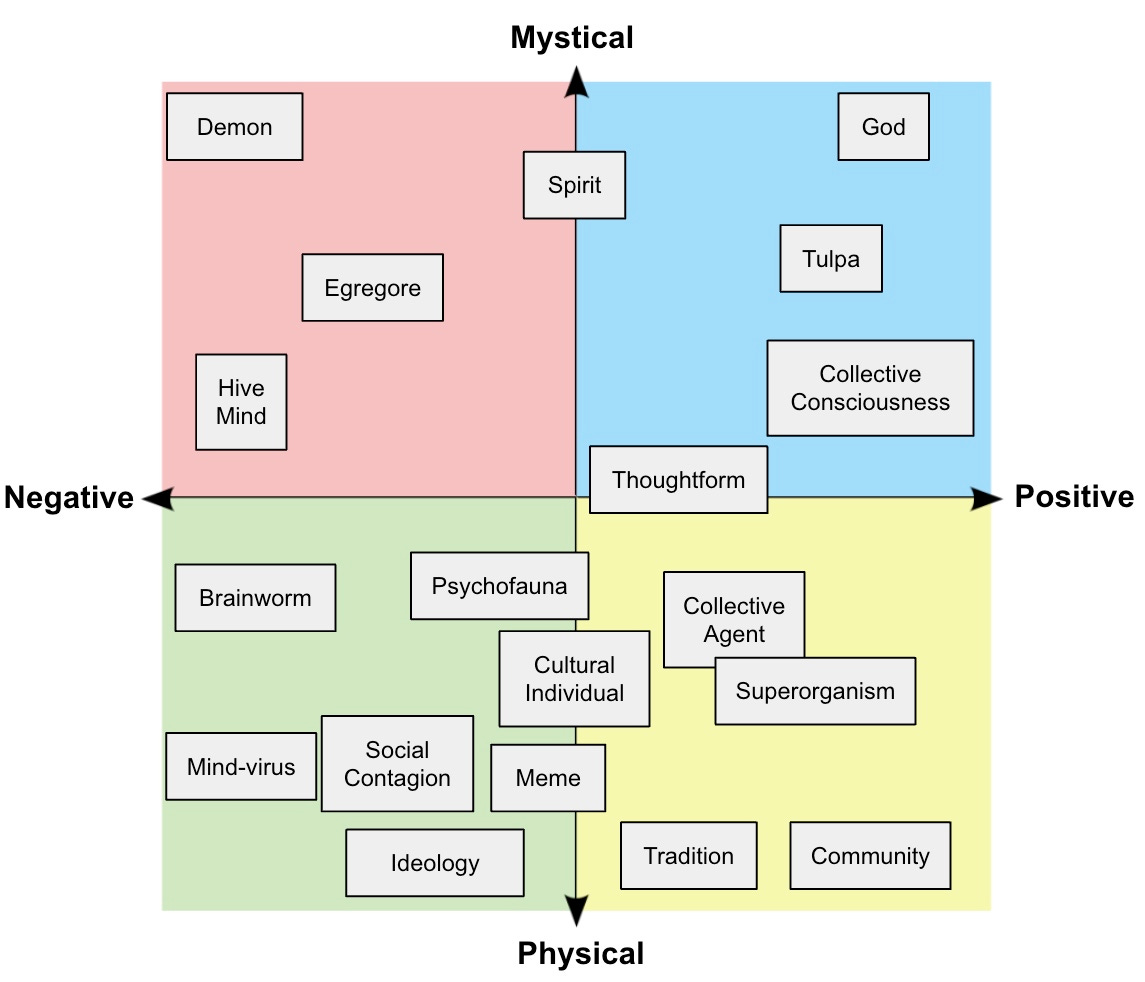
Near the middle of that chart, not too associated with anything yet, is a neologism: psychofauna. The word was coined in a parallelism to “megafauna” in November 2022:
Psychofauna is a fun word. It evokes the organism-like nature of our entities: they are born, they die, they make decisions, and they evolve through natural selection. It evokes danger: just like standing in the vicinity of a sabertooth tiger can be perilous, being in contact with certain psychofauna can spell trouble. But also, it evokes diversity: there are countless kinds of psychofauna, some small and harmless, some gigantic and prone to devour the minds of careless humans.
The term has already begun to spread in the little part of the internet where I dwell. I predict that its usage will increase quite a lot. It’s not outside the realm of possibility that it becomes mainstream within a few years, though of course that would still be surprising.
(The only downside is that it doesn’t have a recognized singular form yet. “Psychoanimal” would do; I prefer “psychocreature.”)
The diversity of psychofauna, and their importance in understanding the world around us, imply that we could and perhaps should compile a bestiary.
The idea isn’t new. On one level, you could say that every catalog of deities, angelic beings, or saints is an attempt at compiling such a bestiary. On the more explicit side of things, the SCP Foundation comes to mind: it is a fictional universe built around paranormal entities, many of which could be described as psychofauna. It is, of course, meant as fiction. (I’m only familiar with the There Is No Antimemetics Division stories, and I don’t know to what extent they are representative of the rest.)
I have also seen a wiki-style list called M.A.D.R.U.: the Memetics & Abstractions Decentralized Research Unit. But it is inactive, because compiling bestiaries is hard.
Others, without any pretense of making comprehensive lists, have written essays about various psychofauna. The blog Exploring Egregores interprets the horrific deities of H.P. Lovecraft’s fictional mythology as so many psychocreatures, such as Cthulhu as a personification of tribalism. Sarah Constantin called “Ra” — the Egyptian royal god — the phenomenon of generic superlativity, legitimacy, prestige, and the halo effect. And the classic in this genre is Scott Alexander’s Meditations on Moloch, which associates the Semitic god of child sacrifice to the psychocreature of coordination failure.
These essays are relatively long, because psychofauna are never easily defined. They’re also, when they are done well, the best way to gain a handle on hazardous psychofauna that otherwise tend to remain elusive.
I write a blog whose title contains the words “Atlas of Monsters,” so perhaps it should come as no surprise that I’m interested in this. I would like to compile the psychofauna bestiary. I envision it as a collection of 10 or 15 essays like those, bound together in a beautiful book. Each essay would describe a particularly important or dangerous psychocreature.
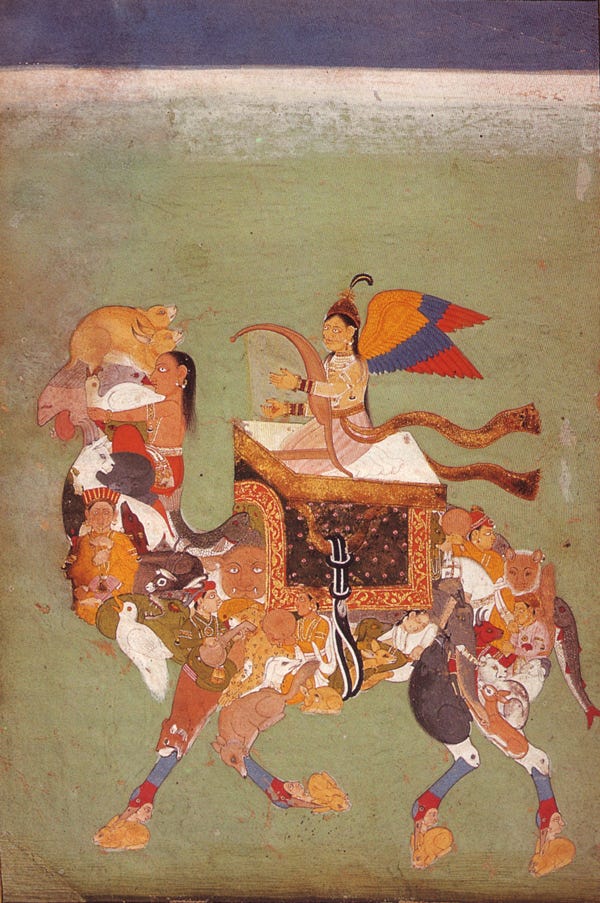
I don’t know yet what would go into the bestiary, though I know it should not attempt to be exhaustive, which would be an almost guaranteed way to fail. Instead, the point is to think deeply about some of the gods or egregores or memes that run the world. Ideally the authors would be people who, through research, art, or other means, have seen psychofauna that most of us are only dimly aware of.
Ra and Moloch (and Moloch’s nemesis, Slack) would be good candidates, if their authors agree. The rest would be up to you. I could see an essay, for instance, on The Machine a.k.a. The Optimizer. One on The Pattern. We could write about any reinterpretation of a forgotten god, historical or fictional. We could personify the very idea that ideas are alive and you are dead.
I don’t know if this bestiary will ever be written, but if you are interested in helping me meme it into existence, please do reach out.
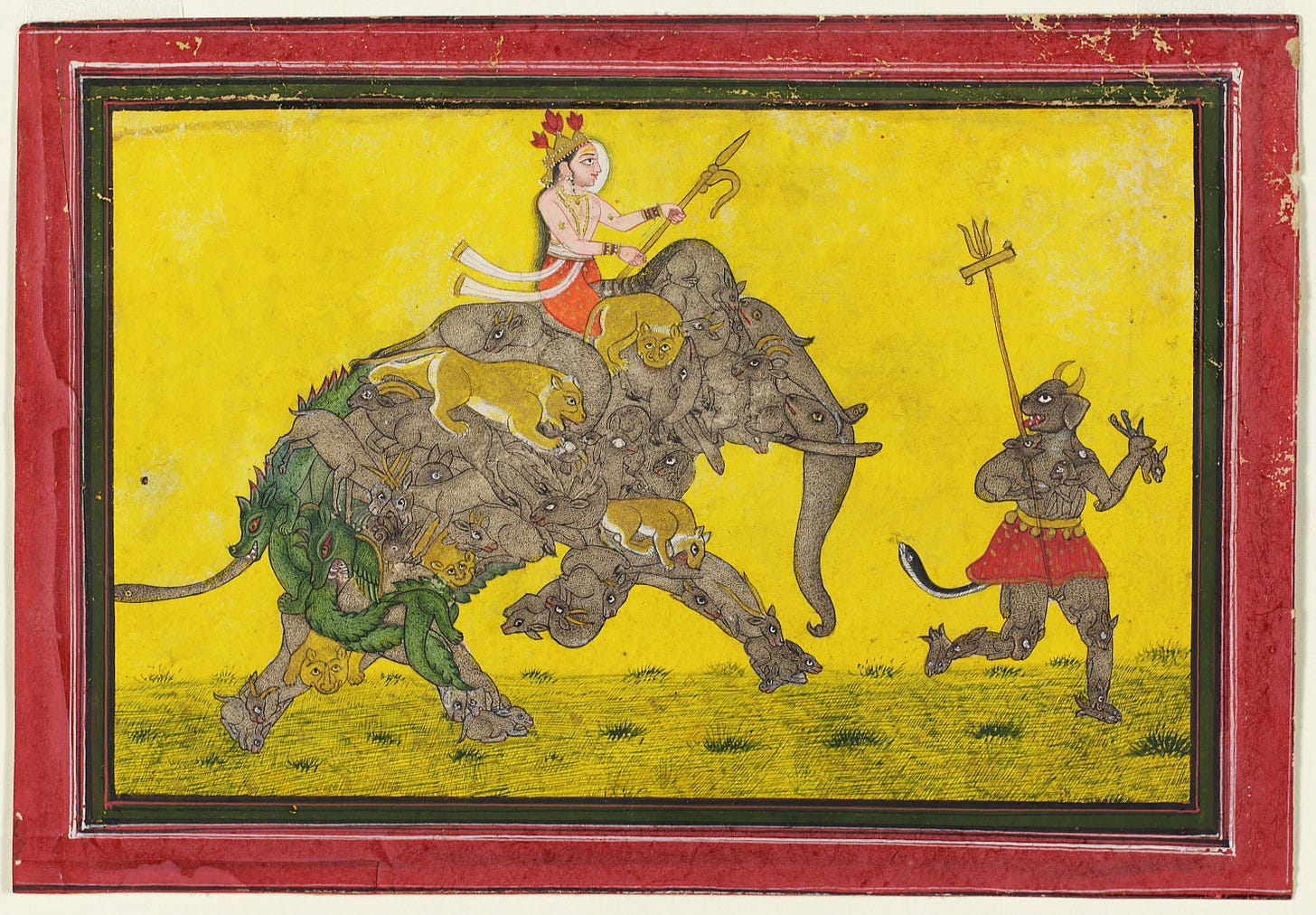


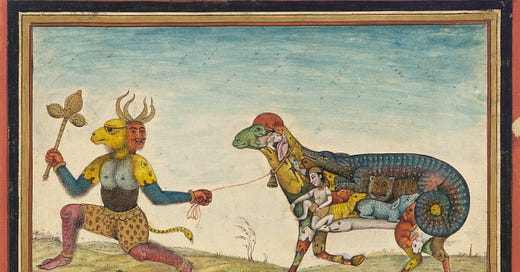



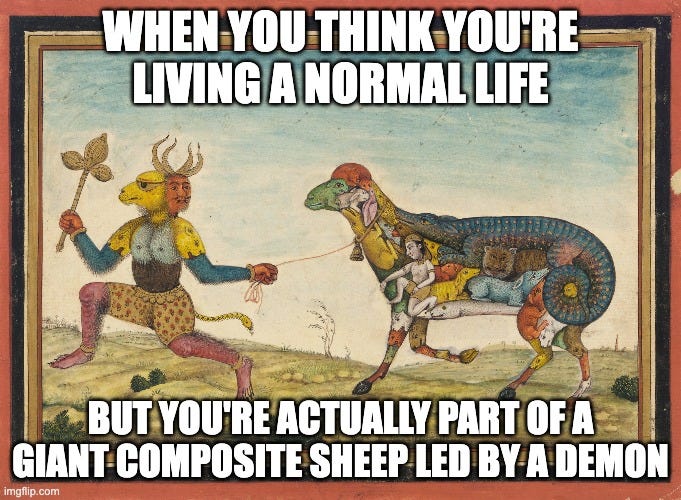

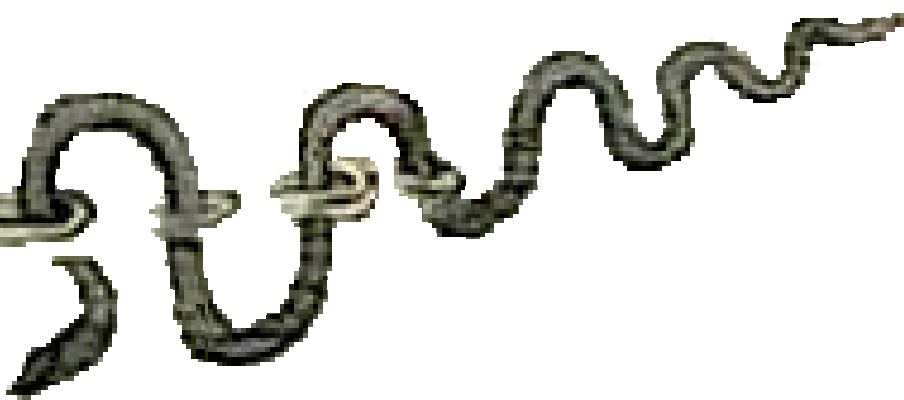

Another beautiful thing about having Gods is that you can name people after them --naming someone Vishnu, Siva, Sriram has such power and must have an influence on their lives... Post-pantheism, a lot of Christian countries moved more to Saints and virtues (e.g., very common in older Mexico - "Piedad" "Dolores"), but it seems we might have lost a magical quality we could impart on each other...
Eliot Weinberger’s Angels & Saints and Borge’s Bestiario come to mind as early models. Both are less interested in the physical reality of their subjects than how believing in them shapes the world. They’re also cracking good reads.